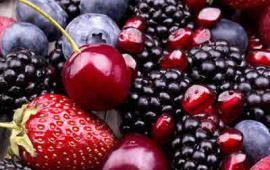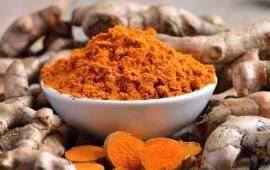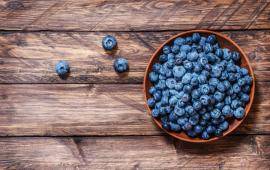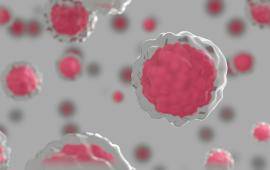
Brain Cancer Natural Treatment
The most frequent malignant brain cancer is glioblastoma and astrocytoma. The treatment protocol with chemotherapy uses oral temozolamide for 6 months. It is important to reduce temozolamide side effects, in order to have better tolerance, thus allowing chemotherapy cycles to be completed without interruption.
Chemotherapy kills blood cells. It is necessary to control the immunity with white blood cell count test, since, if the count is less than 3000, chemotherapy is postponed until it reaches these levels. On the other hand, the immune system is important in the control of cancer growth and once the chemotherapy cycles have finished it is necessary to recover the normal values of white blood cells in the shorter possible time.
There are Chinese Herbal formulas that boost the immune system. Intravenous vitamin C also helps to strength the immune system.
Brain cancer chemotherapy side effects such as nausea, vomiting, fatigue can improve with Chinese Herbal formulas addressed to strengthen the digestive system in conjunction with acupuncture. Intravenous vitamin C improves fatigue associated with the administration of chemotherapy.
Integrative oncology also helps to reduce side effects of radiation therapy, such as radiodermatitis or fatigue. The effects of long-term radiation therapy can be diminished by using antioxidant nutrients, important in the prevention of brain radionecrosis.
In the treatment of brain cancer, it is very important to remove the cancer stem cells, so surgery is the treatment with the best prognosis. Chemotherapy and radiotherapy are also addressed to kill cancer cells, but they cause significant side effects and weaken the body. Therefore, recovering and strengthening the body after these treatments, helps to prevent cancer recurrences.
Diet plays a very important role to remove toxicity of the treatments and improve the quality of life.
Scientific studies on the anticancer effect of some Chinese herbs, show anticancer action of Scutellaria Baicalensis root, Rhizoma Nardostachydis and the Angelica Sinensis root in brain cancer.
Specific studies on glioblastoma show Magnoliae Officinalis cortex has two potent substances magnolol and honokiol that have demonstrated their action to induce apoptosis or cell death of human glioblastoma cells, in addition to being able to regulate the permeability of membranes and inhibit the invasion of cancer cells.
There are scientific studies that demonstrate the anticancer action of curcumin in the glioblastoma cancer cell. Curcumin is a substance present in Rhizoma Curcumae Longae and B-elemene is a substance present in Radix Curcumae.
Vitamin D inhibits the growth and invasive capacity of human glioblastoma cells, in addition to having a regulatory effect on the immune system.
Antioxidant action of coenzyme Q sensitizes human glioblastoma cells to treatment with radiotherapy and temozolamide
Scientific studies on the anticancer effect of Chinese herbs in brain cancer
- Scheck, A. C. et al. 2006. Anticancer activity of extracts derived from the mature roots of Scutellaria baicalensis on human malignant brain tumor cells. BMC Complem. Altern. Med. 6: 27.
- Hwang, S. Y. et al. 2012. Nardostachys rhizoma extracts for the treatment of brain cancer. Repub. Korean Kongkae Taeho Kongbo KR 2012092265 A 20120821.
- Tsai, N. M. et al. 2005. The antitumor effects of Angelica sinensis on malignant brain tumors in vitro and in vivo. Clin. Cancer Res. 11: 3475–84.
Scientific studies on the anticancer effect of Chinese herbs in glioblastoma cells
- Chen, L. C. et al. 2009. Magnolol inhibits human glioblastoma cell proliferation through upregulation of p21/Cip1. J. Agricult. Food Chem. 57: 7331–7.
- Jeong, J. J. et al. 2012. Honokiol exerts an anticancer effect in T98G human glioblastoma cells through the induction of apoptosis and the regulation of adhesion molecules. Intl. J. Oncol. 41: 1358–64.
- Chang, K. H. et al. 2013. Honokiol-induced apoptosis and autophagy in glioblastoma multiforme cells. Oncol. Lett. 6: 1435–8.
- Joo, Y. N. et al. 2014. Honokiol inhibits U87MG human glioblastoma cell invasion through endothelial cells by regulating membrane permeability and the epithelial-mesenchymal transition. Intl. J. Oncol. 44: 187–94.
- Su, C. C. et al. 2010. The anti-cancer efficacy of curcumin scrutinized through core signaling pathways in glioblastoma. Intl. J. Mol. Med. 26: 217–24.
- Dhandapani, K. M. et al. 2007. Curcumin suppresses growth and chemoresistance of human glioblastoma cells via AP-1 and NF-κB transcription factors. J. Neurochem. 102: 522–38.
- Karmakar, S. et al. 2007. Curcumin suppressed anti-apoptotic signals and activated cysteine proteases for apoptosis in human malignant glioblastoma U87MG cells. Neurochem. Res. 32: 2103–13.
- Zhu, T. Z. et al. 2011. β-elemene inhibits proliferation of human glioblastoma cells through the activation of glia maturation factor β and induces sensitization to cisplatin. Oncol. Reports 26: 405–13.
- Yao, Y. Q. et al. 2008. Antitumor effect of β-elemene in glioblastoma cells depends on p38 MAPK activation. Cancer Lett. 264: 127–34.
- Zhu, T. Z. et al. 2014. β-Elemene inhibits proliferation through crosstalk between glia maturation factor β and extracelular signal-regulated kinase 1/2 and impairs drug resistance to temozolomide in glioblastoma cells. Mol. Med. Reports 10: 1122–1128.
- Zhao, Y. S. et al. 2012. β-Elemene inhibits Hsp90/Raf-1 molecular complex inducing apoptosis of glioblastoma cells. J. Neuro-Oncol. 107: 307–14.
- Zhu, K. et al. 2012. Extraction of total polysaccharides from Agrimonia pilosa and evaluation of its inhibitory activity on human glioblastoma U251 cells in vitro. Zhongguo Shiyan Fangjixue Zazhi 18: 188–91.
Scientific studies on the anticancer effect of Coenzyme Q in glioblastoma cells
- Frontiñán-Rubio J et al. (2018) Regulation of the oxidative balance with coenzyme Q10 sensitizes human glioblastoma cells to radiation and temozolomide, Radiother Oncol. 2018 Aug;128(2):236-244. doi: 10.1016/j.radonc.2018.04.033.
Scientific studies on the anticancer effect of Vitamin D in glioblastoma cells
- Emanuelsson I et al. (2018) Vitamin D Analogues Tacalcitol and Calcipotriol Inhibit Proliferation and Migration of T98G Human Glioblastoma Cells. Basic Clin Pharmacol Toxicol. 2018 Aug;123(2):130-136. doi: 10.1111/bcpt.13007.
Ask for opinion and find an appropriate solution to your problem
ONLINE Doctor Consultation






